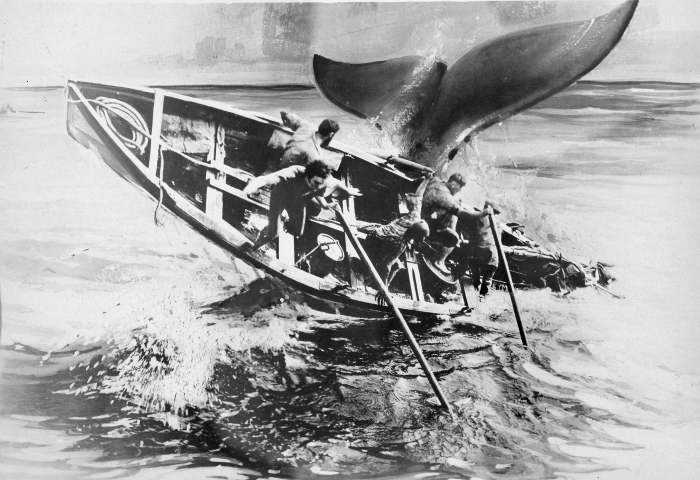Can Oil Workers of the Present Learn from Whalers of the Past?
Study led by Department of Anthropology researchers suggests the answer is yes
The transition away from oil and gas toward renewable energy sources like wind, water and solar power has been a controversial topic for some time—particularly in states that have a rich history with the former.
Inspired by her own experiences growing up in the longtime oil-producing state of Louisiana, Jessica Staggs, a doctoral candidate in the University of Maryland Department of Anthropology (ANTH), recently set out to explore one of the reasons why some opinions about oil are so deeply entrenched; a reason that has to do with what her recently published paper in Energy Research & Social Science calls “labor archetypes.”

“The simplest way I would describe what a labor archetype is that it’s this icon that we create of what a person in a particular job looks like. And sometimes, that archetype or ‘icon’ becomes a symbol of the kind of person that people in a community think everyone should be,” Staggs explained.
Hoping to be able to help oil workers in her home state and its neighbor, Texas, learn from communities who were similarly pushed into a different economic direction, Staggs worked with Joshua Drew, an assistant professor in the State University of New York’s College of Environmental Science and Forestry, and ANTH associate professor L. Jen Shaffer to review dozens of archived articles from The New York Times and The Boston Globe to understand the labor archetype of the 19th and 20th century Yankee whaler, a person from New England who hunted whales for their oil, baleen, and ambergris.
After determining just how deeply ingrained the Yankee whaler labor archetype was in two Massachusetts whaling towns, Nantucket and New Bedford, they searched those same archival materials for information on how the towns were able to survive the transition from whale oil to kerosene despite the communities’ strong cultural associations with the profession.
The researchers found that the towns handled their transition very differently. New Bedford chose to specifically exploit the “industrial power” of the Yankee whaler archetype to justify the town taking on new, diverse industries that saw moderate successes, like textiles and manufacturing. Nantucket, on the other hand, chose to draw on the nostalgia of the entire Yankee whaler archetype, going on to host heritage festivals that brought tourists to the region.
After reviewing commentary on oil workers and the transition to offshore wind energy in archived articles from The Times-Picayune (currently nola.com) and The Texas Tribune, the researchers believe that Louisiana and Texas can learn from both Massachusetts towns’ approaches.

“We found quite a few examples of companies and representatives in Houma, Louisiana saying things about the transition to wind power like ‘We can use the same Cajun ingenuity,’ ‘Offshore work is in our DNA.’ So if you can sort of transform the labor archetype to not just say ‘Offshore oil is in our blood,’ but ‘Offshore energy is in our blood’ that's a way that these communities can maintain their cultural values, move into new industries as they come along, and build some resilience,” said Staggs.
Doing so, the researchers believe, will only be increasingly important.
“We are seeing this rapid expansion and growth of renewable energies, whether it's wind power, solar power, or hydropower, and so communities are going to have to make those transitions,” said Shaffer. “People will need to start thinking about how the renewable energy shift is going to affect them and their industry, and I think this paper is just such a good example of how something that can be really fundamental to a group of people—their jobs—can be used in a flexible way: To help people move from one sort of employment to another that can support communities without having to give up everything.”
Read “Labor archetypes in industrial transitions: Case studies from yankee whaling and gulf wind energy in the United States”
Main photo credit: Clifton Productions. Whaleboat Being Overturned by a Whale, still from Down to the Sea in Ships, 1922. Silver gelatin print, 8 x 10 inches. New Bedford Whaling Museum Photography Collection, 1983.42.18. Image courtesy of the New Bedford Whaling Museum.
Published on Fri, May 24, 2024 - 11:27AM




